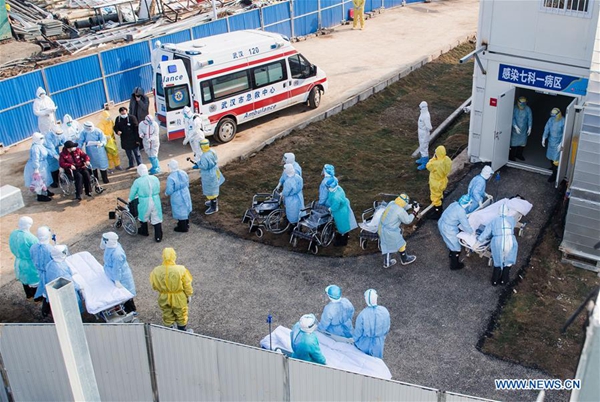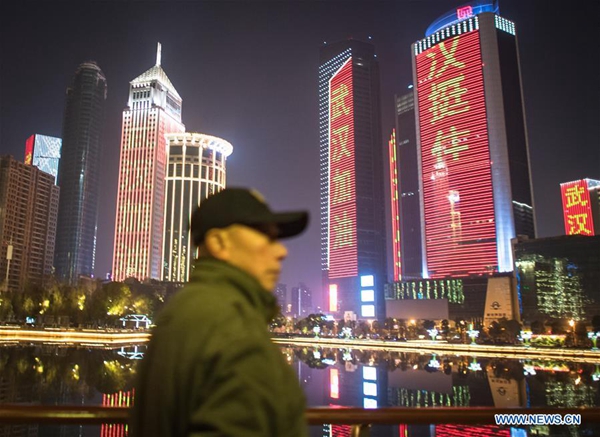Jobs and futures
Wang has another reason to be restless at home. As a manager of a major courier service company in Shanghai, Wang has been working remotely and monitoring virus containment efforts throughout the country, and he is gravely concerned about his company and the thousands of people it employs.
Online shopping and express shipping have been integral parts of the daily life for people in China, even before they became immobile in their homes. With soaring demand, businesses like Wang's are now faced with the lifesaving yet labyrinthine local policies to combat the outbreak.
Wang said he understood the need for the stringent measures, but policies like the ones requiring recently traveling workers to be quarantined for 14 days—the suspected incubation period of the virus—has been burdensome, especially for the company-hired truck drivers who are always on the road.
The company is also having increased financial pressure, and measures tiding businesses over the crisis period are not helping—one policy encourages state-owned firms to reduce rent, but Wang's company leases from private developers. Looking at other companies with plans for mass layoffs, Wang said he wishes his own company will not have to face similar decisions.
As working professionals agonize over their jobs while enduring the prolonged fight against the novel coronavirus, young people still in school are worrying if their careers might be over before they begin.
Wang Zhuoting, a college student studying in Wuhan, returned to her hometown in nearby Tianmen city in mid-January. She is on the last year of her product design major, and she had been expecting to graduate in June and find a job.
To complete her degree, Wang still needs to finish a thesis and a design project. But with schools in Wuhan remaining closed for the foreseeable future, all Wang could do is wait. She could work on her thesis at home, but the design project requires machines, and she does not have access to a workshop anywhere. "If we can't begin this semester still, I'm afraid I'll be out of school forever," Wang said.
The period between the end of Spring Festival and June is usually the job-hunting season for prospective graduates. As would be expected, opportunities are scarce in a city under total lockdown. Wang said her school had set up job fairs online, and she is also considering applying outside Hubei province. Yet without assurances she would graduate in the first place, or that travel restrictions would be lifted any time soon, all to her seems little more than wishful thinking.
Silver linings
At her university, Liu Yong and the teaching staff had been working to help graduating students stave off anxieties. Some had planned to start internships in late February, which had to be postponed. Liu suggested the students finishing their graduation thesis and then wait to carry on the internship when all is better. "We only have to change our plans and wait till we have a way out."
And some experts have said that waiting is an effective strategy against the outbreak. As more hospitals are built and patients undergo treatment, the number of new cases in Wuhan has declined from thousands a day to fewer than 400 on Feb. 20. "I believe given time, the outbreak can be contained and resolved, definitely," Liu said.

Medical workers help the first batch of patients infected with the novel coronavirus move into their isolation wards at Huoshenshan (Fire God Mountain) Hospital in Wuhan, central China's Hubei province, Feb. 4, 2020. The hospital, along with several new hospitals built up in a short period of time, has contributed to the control of the virus. [Photo/Xinhua]
And while people in Wuhan hold their breath, some had found silver linings as they wait out the crisis. Wang Bing, whose work has taken him away from Wuhan and his family for years, said he has had a "personal transformation" while stuck in his hometown.
"I came to realize the importance of the entire family to be together," he said. "In fact, nothing beats a whole family staying together, each of us healthy."
Wang said he had thought about finding a job in Wuhan after the outbreak is over. "Family is the first priority."

Photo taken on Jan. 31, 2020 shows buildings illuminated with slogans to cheer the city on in Wuhan, central China's Hubei province. [Photo/Xinhua]




